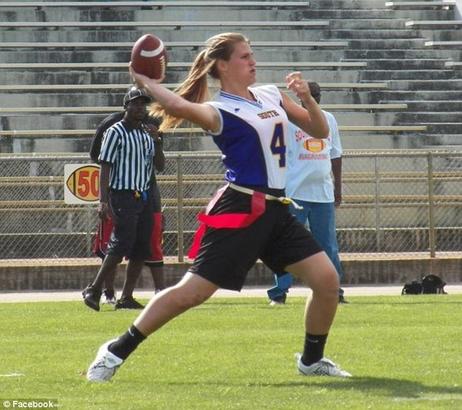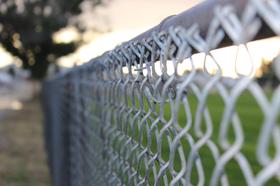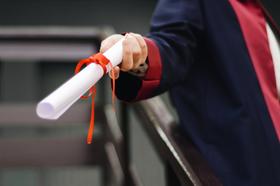The state of Virginia will not be requiring public schools to accommodate home-schooled athletes in their sports programs, now that the bill dubbed the “Tim Tebow” bill has been shot down in a congressional vote. The bill was named for the NFL quarterback currently on the roster for the Denver Broncos, who was home-schooled through high school but played on the football team of his local public school. While the vote was close, some republicans and the majority of Democrats in the state agreed that a requirement would be unfair to public schools on both an economic and participation level.
This video reports on the failure of the so-called Tebow bill.
The Impact of the Bill
According to a report at the Washington Post, the “Tim Tebow” bill would have ensured tens of thousands of home-schooled student across the state had the right to participate in athletic programs at local public schools. State officials estimate that around 32,000 students are home schooled in the state, although the Home School Legal Defense Association believes that number to be much higher. There is no way to predict how many of these students would take advantage of athletic programs if they were given the chance.
Currently, 25 states allow for such participation, under a variety of guidelines, according to information provided to the New York Times by the Home School Legal Defense Association. Of this number, 16 states permit home-schoolers to participate in sports at public schools, while the other nine leave the decision to local districts. This legislation was first introduced to the Virginia legislature in 2005, and repeatedly since that time, but with no success.
Details of the Bill
The “Tim Tebow” bill was introduced by state legislator Robert B. Bell (R-Charlottesville), who told the Washington Post that home-schooled children just want a chance to compete like their public school counterparts. Bell told the state legislature, “I beg you to give these kids a chance to try out.” In addition to sports, the bill also would have paved the way for students to participate in other extracurricular activities, such as drama and yearbook.
Forbes reports that the bill would have barred any school from participating in an association that did not allow home-schooled students to be included in athletic programs. Currently, the Virginia High School League has implemented such a ban. Under the bill, schools would have been allowed to charge an extra fee to home-schooled students for participating in extracurricular activities. This was added because state funding is allocated in part based on the number of students enrolled in a public school. The addition ensures public schools can make up some of the fees that are lost when they include home-schooled students in these activities.
This bill has been accompanied by highly-charged emotions since its introduction. When the official debate over the bill ensued in the General Assembly, hundreds of interested Virginia residents crowded into the Senate meeting room and others waited in the hallway outside to hear the outcome of the debate. The issue has warranted plenty of blogs and opinion pieces from local publications, and those on both sides have exhibited passion about their positions.
Problems with the Bill
The idea of allowing home-schooled students to participate in public school activities may sound good on the surface. After all, these families also pay school taxes, but without taking advantage of the many services and benefits public school currently offers. However, significant snags in the plan became a big concern for legislatures.
First, the Washington Post reports that some legislature members, who had also served on school boards and PTAs, were worried that home-schooled students would not be able to meet the specific academic requirements to participate in athletic programs. Currently, public school students must show they attend five classes every day to be eligible for sports participation. Although the bill stated that home-schooled students would have to meet the same academic criteria, measuring the criteria is significantly more challenging in a home school environment.
Another concern is that home-schooled students would take team slots away from public school students. Some also questioned whether home-schooled student would have the ability to jump from school to school, in search of the best athletic program in their area. Public school students do not have that ability, putting home-schooled students at a decided advantage.
Opponents of the bill also believed that sports are a privilege in public schools that are lost when parents make the decision to home school their students.
“Every parent of every child in this room has a choice,” Sen. Richard L. Saslaw (D-Fairfax), who opposed the bill, was quoted as saying in the Washington Post. “They know what the ramifications are.”
Results of the Vote
Originally, the bill passed the Republican-controlled Virginia House by a vote of 59-39. The Republican governor of the state, Bob McDonnell, was a strong supporter of the bill and was expected to sign it into law once it got through the state senate. However, when the bill finally came down to a vote in the Virginia Senate, it was killed in an 8-7 vote by the Virginia Senate’s education and health committee.
The vote was largely on party lines, with Republicans supporting the bill and Democrats opposing it. However, Sen. Harry B. Blevins (R-Chesapeake) voted against the bill, tipping the partisan vote. Blevins issued a public statement on why he voted the way he did on the “Tim Tebow” bill, but the reasons may be clear to many without the statement – Blevins is also a retired public high school principal and coach.
For now, the “Tim Tebow” bill has been shelved in Virginia, but judging from past history, this issue is far from over in the state.
Questions? Contact us on Facebook. @publicschoolreview














